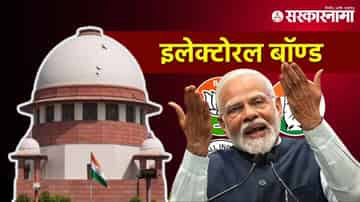New Delhi, April 2: Over a month and a half after the Supreme Court struck down the center’s electoral bonds scheme, Prime Minister Narendra Modi has broken his silence, defending the controversial initiative and warning detractors of future regret. In an interview with Thanthi TV, Modi asserted that the scheme has enabled the establishment of a money trail, a feat previously unattainable in Indian elections.
Modi’s remarks come in the wake of the Supreme Court’s declaration of the electoral bonds scheme as “unconstitutional” and violative of voters’ right to information. Despite this setback, Modi remains steadfast in his support for the initiative, arguing that it has brought much-needed transparency to political funding.
The electoral bonds scheme, introduced by the Modi government in 2018, allowed companies and individuals to make anonymous donations to political parties. Under the scheme, the State Bank of India (SBI) was authorized to sell these bonds, providing a veil of secrecy over the identity of donors.
Critics have long raised concerns about the anonymity of donations, arguing that it could pave the way for corruption and the misuse of funds. The Supreme Court’s decision to scrap the scheme highlighted these apprehensions, emphasizing the close nexus between money and politics.
Despite Modi’s defense of the scheme, scrutiny over its implementation persists. Data revealed that the Bharatiya Janata Party (BJP) received a significant portion of electoral bonds, raising questions about the impartiality of the initiative. Additionally, concerns have been raised about the role of the SBI in maintaining anonymity, with transparency activists pointing to discrepancies in the handling of bond data.
The controversy surrounding electoral bonds extends beyond domestic concerns, with international bodies expressing reservations about the scheme. The Reserve Bank of India warned against the potential for money laundering, while the Election Commission cautioned against the use of shell companies to funnel illegal donations.
While Modi and his government continue to advocate for the electoral bonds scheme, the Supreme Court’s verdict and ongoing scrutiny underscore the complexities and challenges inherent in regulating political funding. As the debate rages on, the future of electoral financing in India remains uncertain, with the balance between transparency and anonymity hanging in the balance.




